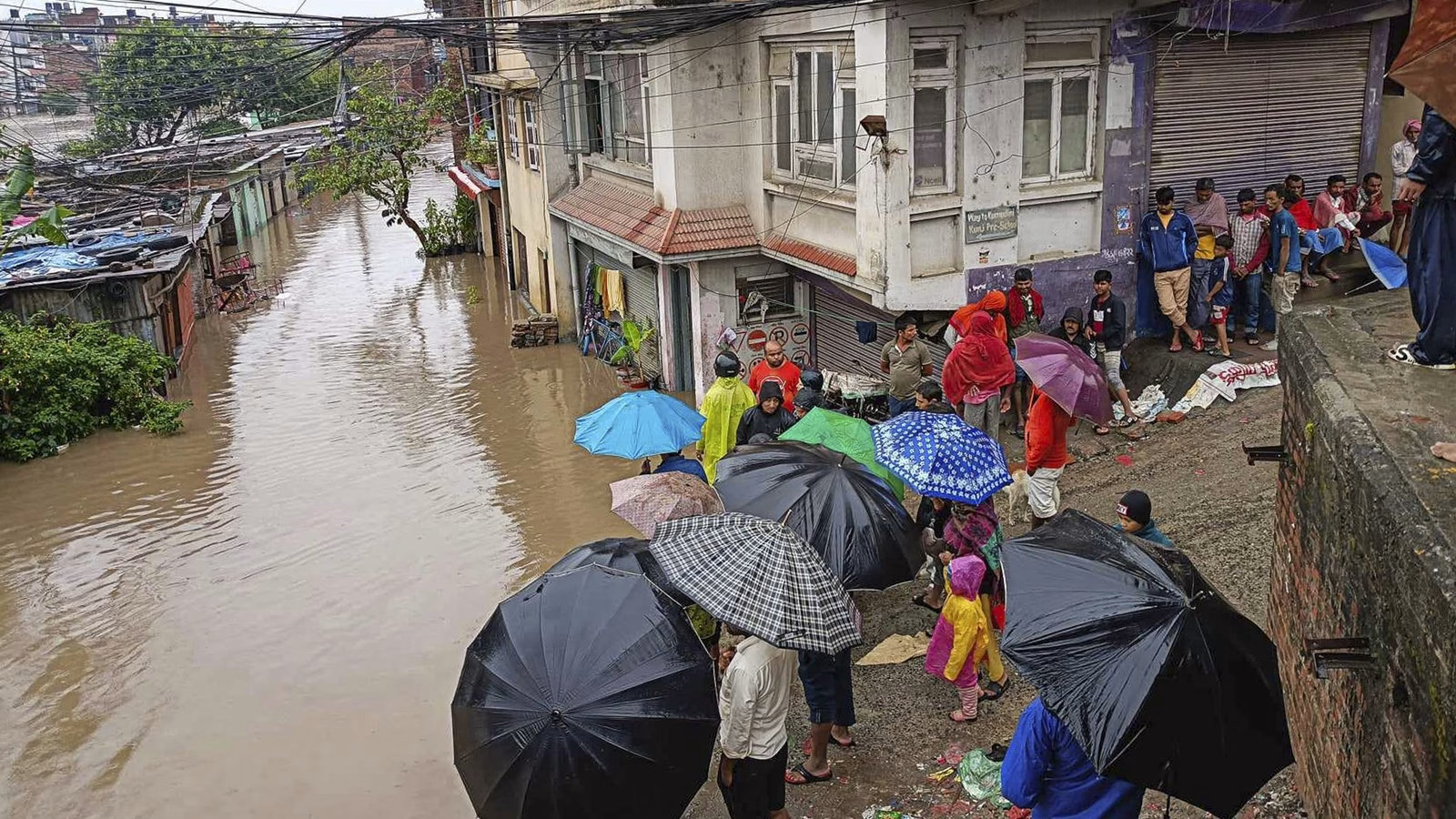At least 100 people have been reported dead following severe floods and landslides across Nepal, officials confirmed on Sunday. The casualties occurred after two days of intense rainfall that inundated the valley surrounding the capital, Kathmandu.
As the situation worsened, many individuals were left stranded on rooftops, prompting rescue workers to use rafts for evacuations. Thousands of homes near rivers have been flooded, and several highways remain blocked. While forecasts indicate continued rainfall until Tuesday, some easing of the conditions was observed on Sunday.
According to a government spokesperson, over 3,000 people have been rescued so far. However, flash floods and landslides have resulted in significant fatalities. In Bhaktapur, east of Kathmandu, five individuals including a pregnant woman and a four-year-old girl lost their lives when a house collapsed due to a landslide. Additionally, two bodies were recovered from a bus buried in a landslide in Dhading, west of the capital; there were twelve people aboard the bus.
A tragic incident also occurred at a training center operated by the All Nepal Football Association in Makwanpur, where six football players were killed by a landslide. Eyewitness accounts reveal the desperate plight of those affected; Jitendra Bhandari described a dramatic scene where four people were swept away by the Nakkhu River. “For hours, they kept on pleading for help,” he told the BBC. “We could do nothing.”
Hari Om Malla, a resident of Kathmandu, recounted losing his truck to the floodwaters. “Water gushed into the cabin as the rain intensified on Friday night,” he said. “We jumped out, swam, and got away from it but my purse, bag, and mobile have been swept away by the river. I have nothing now. We stayed the whole night in the cold.”
Government spokesman Prithvi Subba Gurung informed the state-run Nepal Television Corporation that the flooding has damaged water pipes and affected telephone and power lines. In response to the crisis, around 10,000 police officers, along with volunteers and army members, have been mobilized for search and rescue operations.
The Nepalese government has urged citizens to refrain from unnecessary travel and has prohibited nighttime driving in the Kathmandu valley. Most highways connecting the valley to the rest of the country remain blocked, complicating rescue efforts. Air travel was also disrupted on Friday and Saturday, with numerous domestic flights delayed or canceled.
While monsoon season brings annual floods and landslides to Nepal, scientists warn that the intensity of rainfall events is increasing due to climate change. A warmer atmosphere can hold more moisture, and warmer ocean waters can energize storm systems, resulting in more erratic weather patterns.


